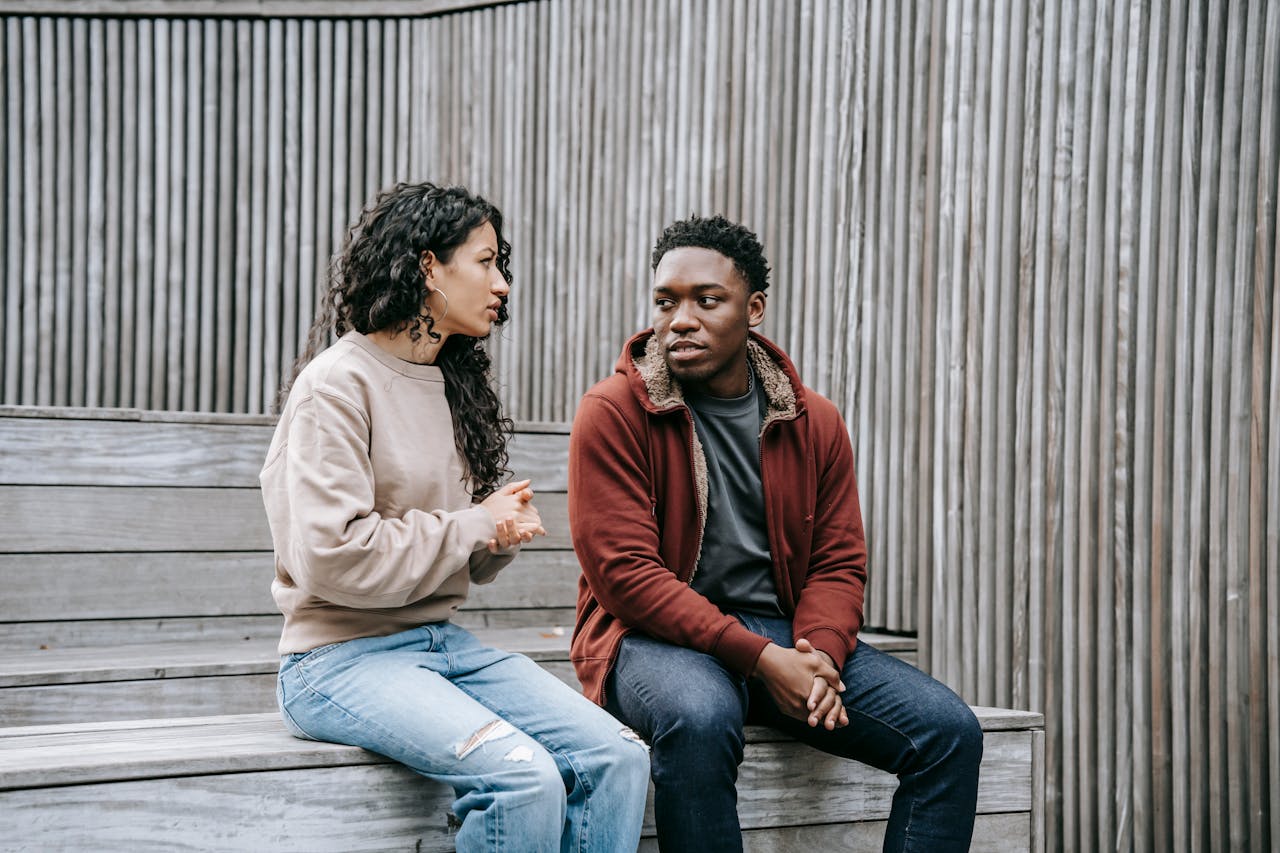This is the third in a series of articles where I take a look at key words and phrases that play an important role in the work I do, helping people discover ways to live and love like they mean it.
Last month we explored B for Body, and you can read the article here.
Subscribe to our newsletter to have these posts delivered straight to your inbox.
Courage has to do with facing things that make us anxious or afraid. It is an ability within us all that can be developed.
In the context of living and loving like we mean it, being courageous isn’t about undertaking major acts of medal-winning bravery. It’s about finding the courage to do something different to what we would normally do, so that we can change our thinking, our reactions and ultimately the way we live and love, for the better.
In this article, I explore a few areas of life in which, when we find the courage to do things differently, we can begin to bring about beneficial change.
The Courage to Leave Our Comfort Zone
Being present with and sharing our feelings, needs, and desires with those close to us has the power to transform both our minds and our relationships. But for many of us, doing that takes us out of our comfort zone and into unfamiliar territory. We face the challenge of breaking free from the old wiring in our brain that’s keeping us from experiencing something new.
Venturing out of our comfort zone to be more present with our partners in a more open and vulnerable way can be a scary prospect, even anxiety-provoking. It’s normal to feel daunted or filled with fear. But the crucial thing to remember is that it gets easier, especially if you take things one-step-at-a-time.
With repeated practice, our ability to face our fears strengthens over time. The solution lies in finding a way to reduce our internal distress enough so that we can get some distance from our embedded patterns of behavior and can begin to give both being with our feelings and expressing them a chance.
The Courage to Open Up
We’ve all heard the saying “bottling things up” or “keeping our cards close to our chest”. And in some situations, it can be beneficial not to reveal all of what’s going on inside of us. But, when we repeatedly suppress our feelings, we never develop that capacity to be with them. We’re robbed of the benefits our core emotions give us. When it comes to recognizing and attending to what’s going on inside of us – for instance when we’re experiencing anxiety or stress – only by finding the courage to open up and be fully present with ourselves, can we hope to change our situation for the better. Finding the courage to open up and express our truth takes time. But spending that time is worth it because it will decrease our anxiety and reveal new ways of relating to and connecting with others. We can then begin to feel more aligned with who we are and the kind of person we want to be.
The Courage to Share Our Deepest Selves
If we really want our relationships to change for the better so we feel closer to our partners and them to us, we have to find the courage to share our deepest selves, and not hide, disguise or downplay our true feelings. And courage in this sense means showing the sadness we feel when we’re hurt. Displaying the anger we experience when we’ve been wronged. Being open about our vulnerabilities when insecure. It’s also about demonstrating the love that fills our hearts when we care deeply, and the happiness we feel when we’re loved in return.
The Courage to Do Nothing When We’re Triggered
When we get triggered, finding the courage to see it as an opportunity for healing and change can avail us to many benefits. The anxiety we feel and the defenses we use are signposts, telling us that our core self is trying to emerge. By pausing and giving ourselves some room, we open up an opportunity to get to know ourselves more deeply. But it’s what we do after the pause that takes real courage. Because once we’ve noticed that we’ve been triggered, our task is to then do nothing. That’s right, absolutely nothing. We simply allow our emotional experience to be present and felt without responding or doing anything about it. We drop our defenses and stay with what’s inside of us. Easier said than done, of course, but doing so stops us from strengthening old, fear-based habits and gives us an opportunity to establish a new way of being that will free ourselves to experience something better.
Something to try
The next time you feel triggered by someone or something, remember to stop and pause and focus inside of yourself. Then begin to notice how you are inclined to react to your feelings and what you might do when you get close to those feelings. Pay attention to what you feel compelled to do when a feeling starts to emerge, and note how you act and feel in situations that could evoke an emotional response.
Do you go with the flow, or are you working against it? Are you listening to yourself with interest, or reacting defensively? Have the courage to tune in to your experience and encourage yourself to stay open-minded. The more you give yourself this space, the more you’ll learn. You’ll begin to develop the capacity to be present to yourself, to your emotional experience. With the courage to lean in, you’ll loosen the grip of fear and your anxiety will lessen. You’ll free yourself up to explore other, more constructive ways of responding.



